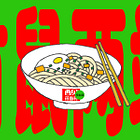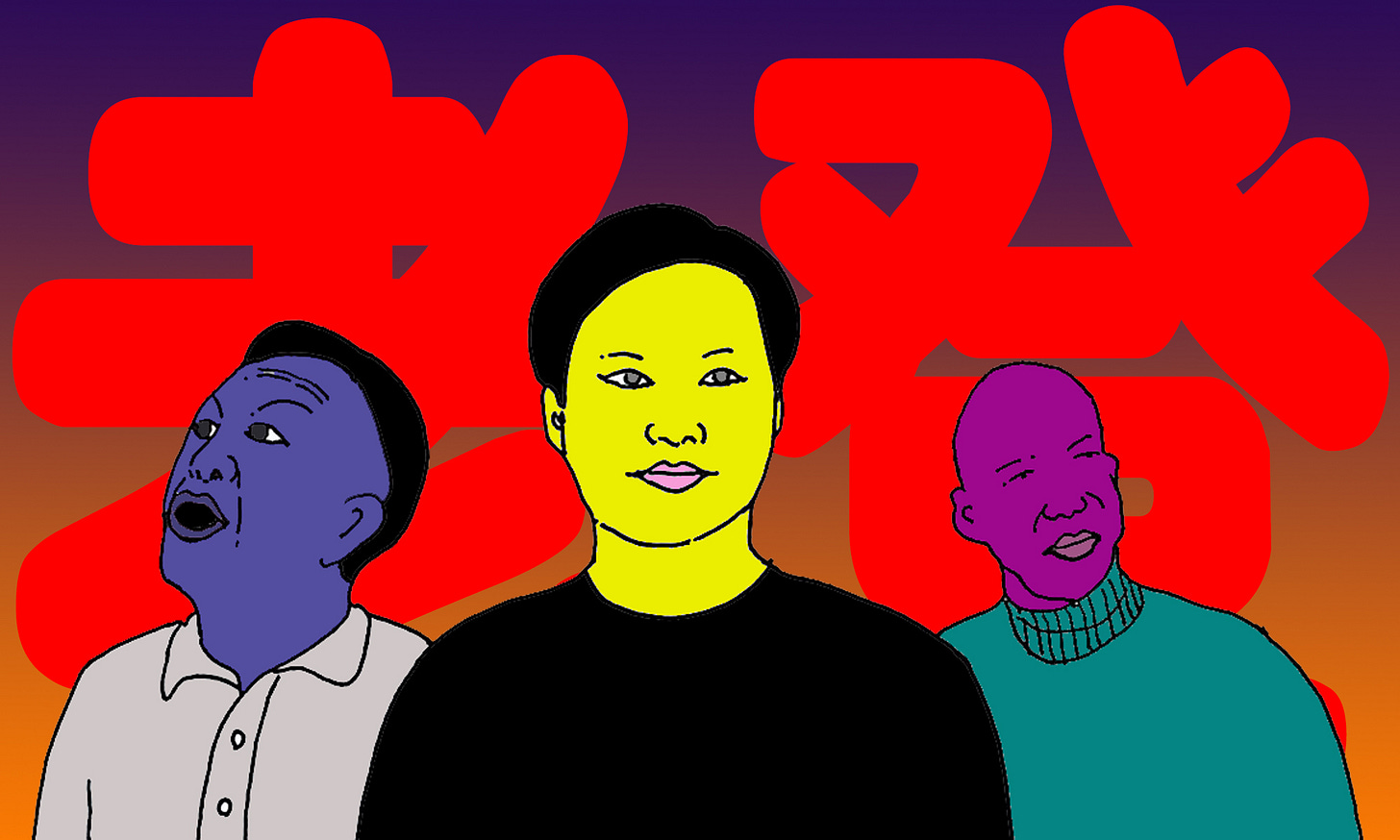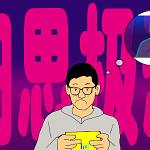Welcome to RealTime Mandarin, a free weekly newsletter that helps you improve your Mandarin in 10 minutes a week.
Subscribe today to get your fluency back, stay informed about China, and communicate with confidence in Chinese — all through immersion in real news.
September saw a wave of high-profile reputation collapses in the media among Chinese entrepreneurs and celebrities.
We’ve covered some of them in this newsletter.
Like when Jia Guolong (贾国龙), the founder of restaurant chain Xibei, was criticised for arrogantly dismissing accusations that food in his restaurants was overpriced and poor quality.
Or when renowned fireworks artist Cai Guoqiang (蔡国强) was ridiculed for his “exploding mountain” (炸山) display in Tibet for an outdoor clothing brand.
Cai and Jia have something in common: they’re both middle-aged, and apparently successful men. But based on their recent reactions to criticism, they’ve also come across as arrogant and out of touch.
And there’s a new two-character word in Chinese to describe them: 老登 (lǎo dēng), which translates as “out-of-touch middle-aged man.”
Laodeng originally is from a Northeastern Chinese dialect, where 登 (dēng) is a derogatory term for an “old man” who behaves inappropriately, or sleazily.
But over the past year, and especially in the last few months, internet users have given laodeng new meaning. Now it refers to middle-aged or older men who are successful but seen as arrogant and disconnected from reality.
Cai Guoqiang and Jia Guolong mentioned above are just two examples of laodengs. September also delivered at least two other high-profile laodeng stories leading some to describe it as “the month of car crash laodeng events” (老登翻车月).
The next laodeng is Lei Jun (雷军).
He is founder of Xiaomi, and is one of China’s most popular entrepreneurs. Since 2020, Lei Jun has given an annual public speech around this time of year. His stories of entrepreneurial struggle have always struck a chord with young people.
But not this year.
His much-anticipated speech at the end of September completely missed the mark. He talked about his hardships and struggles, as always. But this time, he compared the pressures of building Xiaomi’s two new businesses — EVs and chips — to something which he must have assumed everyone in China could relate to: education.
He said:
“It’s like putting two kids through college at the same time.”
同时供着两个孩子上大学。
And that metaphor didn’t land well.
How can a tech billionaire, whose company is worth nearly 1.4 trillion yuan, possibly empathise with ordinary people who are struggling to fund education for their kids?
It came across as completely out of touch. So the Chinese internet responded accordingly:
“When I first got to know Lei Jun, he gave me an impression of being an honest person who didn’t talk much.
Now he’s older—and less honest.”
“初识雷军,是人老实,话不多;再识雷军,是人老,实话不多。” [1]
In other words, Lei Jun is “cringe” (as my teenaged daughter might say). He’s an out-of-touch middle-aged man. And a classic laodeng.
Related
Another recent high-profile laodeng is Wu Jing (吴京).
He is a muscle-bound, macho actor and director of the 2017 nationalistic blockbuster, Wolf Warrior 2. It’s one of China’s highest-grossing films of all time. Following the success of that movie, Wu became synonymous with the state-approved version of masculinity in China, and the aggressive style of “wolf warrior” diplomacy (战狼外交) practiced by some of the country’s diplomats around that time.
As Linda Jaivin puts it in an interview in the China Project in 2022:
“In the state’s masculinity drive… Wu Jing [is] the ideal Chinese man. This is who we all want to be, ripped and powerful and macho.”
But not so much anymore.
This September, mocking videos of Wu Jing went viral on Chinese streaming apps. The videos riffed on a 2017 state media interview with him, poking fun at his arrogant demeanour as Wu dramatically waves his pen with exaggerated tough-guy pauses during the interview.
Now Wu is widely seen as chauvinistic and out of touch. He’s become a laodeng and a laughing stock, mocked for his “Wu Jing-style rhetoric” (which in Chinese is 吴京体).
The rise of the laodeng (老登), or the out-of-touch middle-aged man, is part of something bigger.
It captures a moment in China’s evolving society, at time when more and more people are rejecting stereotyped norms. Many young people have had enough of the masculinity pushed in state media. And the arrogant, aggressive, and rude male leader stereotype — and let’s face it, we’ve all had enough of that!
Laodeng is the latest phrase in a long line of internet slang terms reflecting broader social trends which we’ve explored in this newsletter.
These phrases are invented and used by young people in China to express their frustration at the unfairness they feel as “working people” (打工人) or as “workhorses” (牛马), and more recently with the “conformist office culture” (班味), and the outdated “condescending attitudes” (爹味) they have to deal with at work.
It's also an indirect way for many to vent frustration at the authorities for struggles in daily life, as one Chinese TikToker observes:
“The Chinese economy is not doing well. The property market is sluggish. And university graduates are struggling to find work.
Everyone is under pressure. But they don’t dare criticise leaders or policies—but they do dare criticise actors.
And Wu Jing’s image is too deeply tied to Wolf Warrior.
So if he doesn’t take the hit, who will?”
国内经济不太景气,房地场市场低迷,大学生也不好就业。大家都有压力,但他们不敢骂领导和政策,但是他们敢骂演员啊。而吴京的形象和战狼捆绑的太深了。那吴京不挨骂谁挨骂呢?
So, that’s what we’re discussing this week!
Favourite Five
1. 老登 lǎo dēng
out-of-touch middle-aged man
一连串的老登翻车,不能单纯用偶然和倒霉解释 - When one boomer after another messes up, it’s not just coincidence or bad luck anymore. [1]
Related:
登味 dēng wèi – out of touch middle-aged man vibe
2. 爹味 diē wèi
patronising attitude, condescending tone
他已经开始自我反思“爹味”太浓,要调整自己的表达方式 - He started to realise that he sounds too patronising and is trying to change the way he talks. [1]
Related:
土味 tǔ wèi – tacky vibe
3. 脱节 tuō jié
to be out of touch, disconnected
仿佛活在自己构建的艺术世界里,与现实脱节 - He appears to live in a world of his own creation, detached from reality. [2]
4. 如法炮制 rú fǎ páo zhì
to follow the same pattern, to copy the old recipe
公众没有看到雷军在演讲中给出正面回应,只看到他如法炮制过往的叙事 - The public didn’t see Lei Jun give a direct response in his speech, only a rehash of his usual narrative. [1]
5. 不合时宜 bù hé shí yí
untimeliness, out of touch with the times
蔡国强的“升龙”,更是将“老登”的“不合时宜”推向了极致 - Cai Guoqiang’s “Rising Dragon” took the boomer’s out-of-touch attitude to the extreme. [2]
Related:
与时俱进 yǔ shí jù jìn - to keep up with the times
🎧RTM Podcast Preview
This week on the RTM Advanced podcast, we explain more about the meaning and origins of the phrase laodeng (老登) and other linked phrases.
Tune in at 7 minutes where we…
Break down what they mean…
Explain the stories behind them and how native speakers use them…
And teach you how you can use them in real conversations right now…
So you can show off your amazing Chinese!
Consuming the Conversation
💡 Ready to get inspired to bridge the gap to real-world fluency? 💡
In every RTM Advanced post you unlock content and tools to inspire you, and help you get fluent.
Including my faves: Pleco and Anki flashcards which you can download with one click!
So, ready to finally get started and wave goodbye to that nagging rusty feeling?
Let’s jump in👇
Useful words
6. 翻车 fān chē
to mess up, to fail badly
刚刚过去的9月,可谓是“老登翻车月” - The past September could well be called the “month of boomer fails”. [1]
7. 傲慢 ào màn
arrogance, arrogance and indifference
很容易由此联想到身边具体的登味领导:冷漠、傲慢,随意用权力剥削人 - It’s easy to think of certain out-of-touch leaders around us, who are cold, arrogant, and casually abusing their power. [1]
8. 卖惨 mài cǎn
to play the victim, to gain sympathy
富豪这波“接地气”卖惨,更像一场老登的表演秀 - This billionaire’s attempt to “keep it real” and play the victim felt more like a cringeworthy performance by an out of touch middle-aged man. [1]
9. 说教 shuō jiào
to preach, to lecture
被解读为一种狭隘的“爹味”说教 - It was perceived as preachy and patronizing. [2]

















